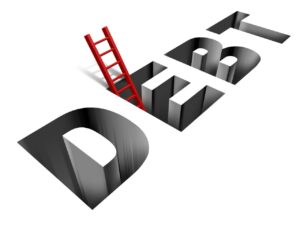Equity is the ownership of assets that may have debts or other liabilities attached to them. It can be positive or negative.
Equity is measured by subtracting liabilities from the value of the assets. For example, if someone owns a car with a fair market value of $14,000, but only has $10,000 left to pay on their auto loan, they have $4,000 in equity. In this case, it’s positive equity because the asset is worth more than what is still owed.
Equity can also apply to homes, businesses, and other significant assets.
In some cases, when you have built up positive equity you can borrow against the asset to meet important financial needs. This can make equity a good source of funds if you have any large payments you must make.
It is important to note that equity can fluctuate for many reasons, including the changing market value. In these cases, the asset’s value could be less than the outstanding balance on the loan – this is known as negative equity.
Negative equity scenarios can be stressful as you could find yourself on the hook to pay off the remaining debt.
With this in mind, understanding and avoiding negative equity is always in your best interest. To help educate you, we shall cover everything you need to know.
How does negative equity happen?
Negative equity happens when the value of an asset you own is less than the outstanding balance on the loan. This may seem odd as most lenders will only loan you what your asset is worth. So, how is it possible?
As an example:
Let’s say the current market value of the home you buy is $150,000. You take out a mortgage for the whole value of the home.
A year later a big manufacturing plant in the area closes. Much of the town relied on the jobs that the plant provided. In need of a job, many people leave the area, overloading the marketing with homes for sale. In this new scenario, your home is now worth $135,000. However, your original loan is still in place from when the market was high. It’s only been a year so you’ve only paid $10,000 off your mortgage. Meaning you still owe your lender $140,000. If this occurs, you have $5,000 ($140,000 – $135,000) in negative equity.
In other words, the amount you owe on your home (or asset) is more than what it’s worth on the market.
Negative equity can cause some issues. For instance, it can make refinancing your loan difficult. You may also struggle to sell the asset. If you do sell, you’re still on the hook to pay off the full outstanding balance of your loan no matter how much money you get from the sale.
How to determine if you’re in a negative equity situation
To determine if you have negative equity:
- Verify how much is still outstanding on any financing you used to secure the asset. You can do this by referring to your loan statement or calling your lender.
- Research the value of the asset on the market today. You can do this by referring to reputable websites or by contacting a professional (a local realtor for example).
If the value of the asset is below what you owe, you are in a negative equity scenario.
How to lessen the chances of a negative equity situation
Here are some steps you can take to avoid negative equity:
Make Smart Purchases: Be informed. Do your research before you buy so you give yourself the best chance at buying assets that will increase in value. If your asset increases in value, so does your equity. Making a good investment requires research and learning market trends.
Put Down More Capital: A small down payment can harm your equity. Taking out a loan with no money down will lead to negative equity almost immediately if the market goes down. Instead, put down a larger down payment.
Buy What You Can Afford: Missing payments early in the course of a loan can cause you to build negative equity. Be sure you’re aware of the costs of owning your asset before taking out a loan.
Common assets that can accumulate negative equity
While negative equity is typically associated with auto loans and home loans, it goes beyond that. You can accumulate negative equity on any asset that you have taken a loan out to purchase. If the asset dips in price and you have yet to pay off the loan, you will accumulate negative equity.
Best way to handle a negative equity situation
There is no guaranteed method to reverse negative equity. However, there are a few options that can alleviate the situation. Here are some of your options:
Keep making payments
You earn a small amount of equity with every payment you make on your loan. The sooner you own your asset, the sooner you have 100% equity.
Refinance your loan
You can refinance if you are having trouble making payments on your loan. Refinancing allows you to replace your old loan with a new loan with more manageable terms. Refinance will enable you to lower monthly payments by taking out a loan with a lower interest rate or lengthening your term.
However, refinancing with negative equity is more complicated.
Sell the asset
You can sell your asset with negative equity. Still, lenders can’t close a loan until the entire balance of the outstanding loan is paid off. If you can’t sell the asset for at least enough to cover your current loan, you’ll have to pay your lender the difference. This can be challenging if you have a large amount of negative equity. However, if the value of your asset continues to decrease, selling may be your best option.
If a negative equity situation has already got you struggling financially, Consolidated Credit can help. We can set you up with a plan to improve your financial health.




